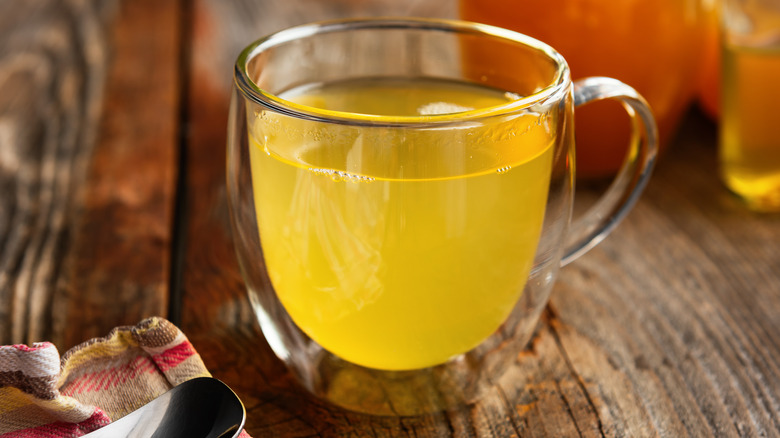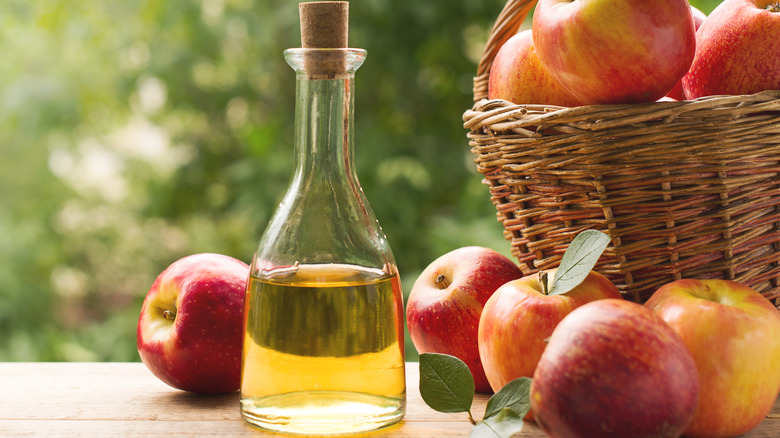Is This Gross Drink Worth The Health Benefits?
You've probably seen bottles of apple cider vinegar while shopping, and you may have even heard that it is good for you. The murky, orange liquid is made by crushing apples and mixing them with yeast, a process that turns apple sugars into an alcohol. The alcohol is then mixed with bacteria and allowed to ferment for about a month, according to Healthline. The result is a tart liquid that many people claim is healthy, but is this drink actually worth the purported benefits?
As it turns out, it could be. The process that ferments the sugars in apple cider vinegar turns it into acetic acid, and this is the ingredient that some experts think gives apple cider vinegar many of its health benefits. One of those perks is helping lower blood glucose levels, which might make managing type 2 diabetes easier. One 2004 study published in Diabetes Care reports that some research shows that apple cider vinegar may improve insulin sensitivity while lowering blood glucose levels. A 2007 review that was also published in Diabetes Care showed that apple cider vinegar taken at bedtime may improve levels of waking glucose in people with type 2 diabetes.
Apple cider vinegar might boost fat loss and mental health
Another advantage to drinking apple cider vinegar may be fat loss. Healthline reports that there are several ways in which this can happen. For starters, it helps lower blood sugar levels and decreases insulin levels. It may also give your metabolism a boost, and that could stimulate your body's fat-burning process. The acetic acid in apple cider vinegar may help prevent weight gain because it fires up fat-burning genes while suppressing appetite (via Healthline).
Some research shows that apple cider vinegar may even improve your mental health. A small 2021 study published in Nutrients revealed that college students who drank apple cider vinegar over a period of four weeks saw their mood improve (via MindBodyGreen).
If you're looking to give this gross-sounding drink a try, it doesn't take much to get started. You can add it into olive oil to make a salad dressing or you simply add a tablespoon to a glass of water and sip on it between meals, per Healthline.


